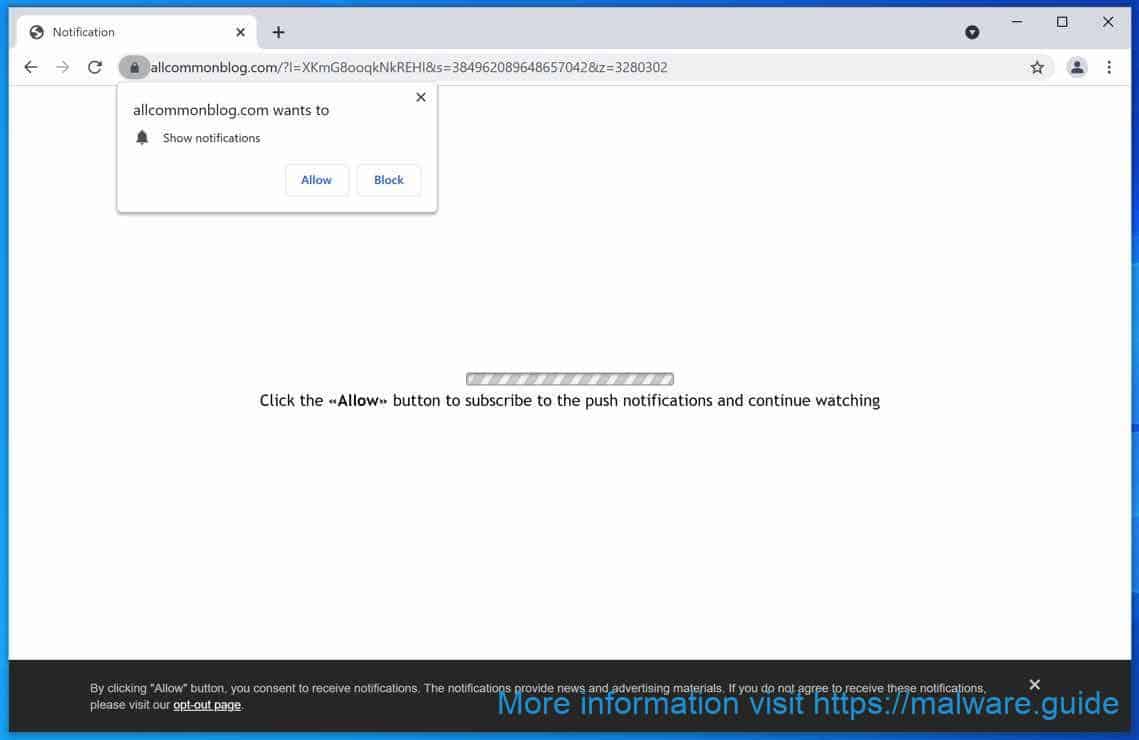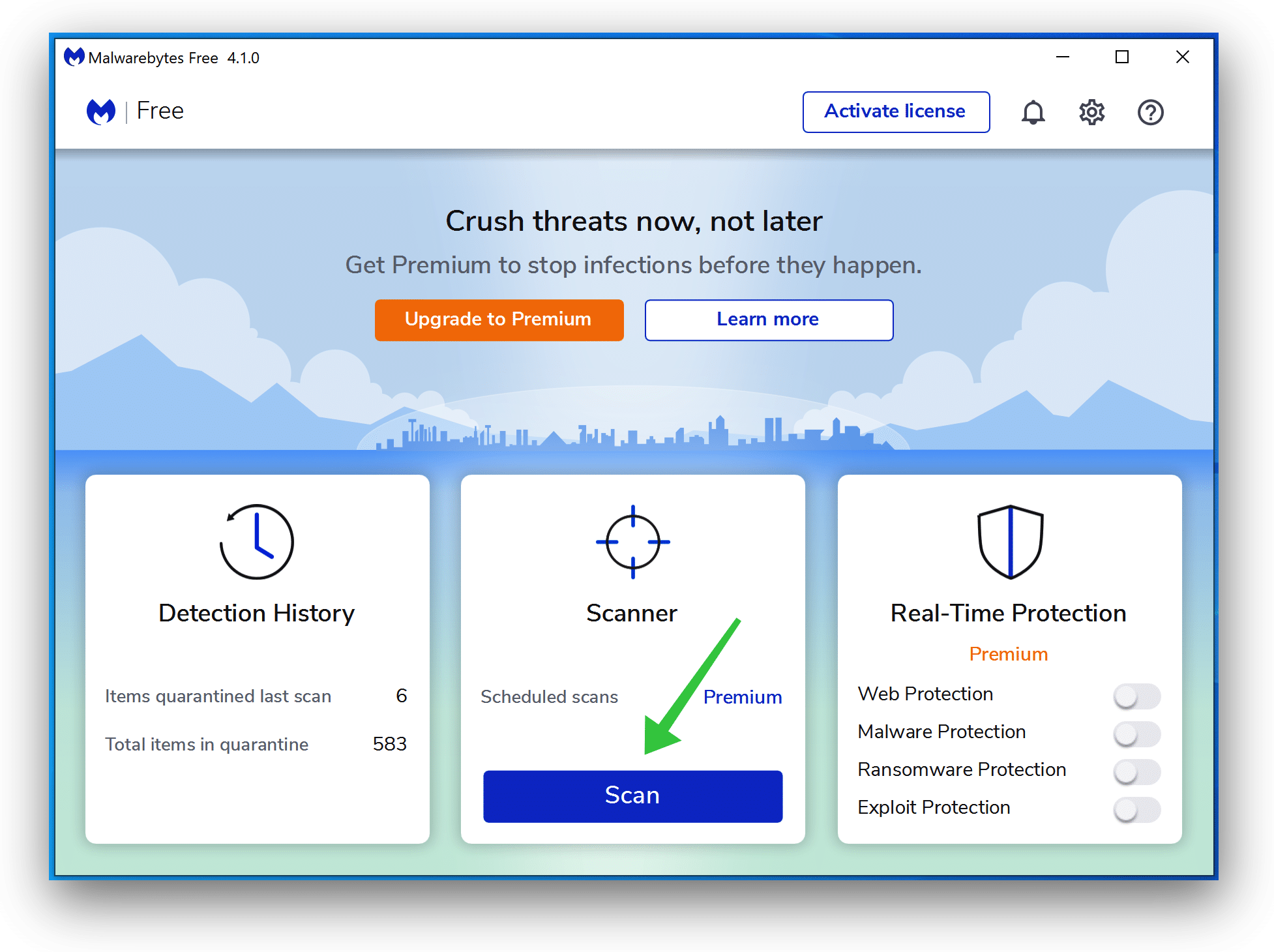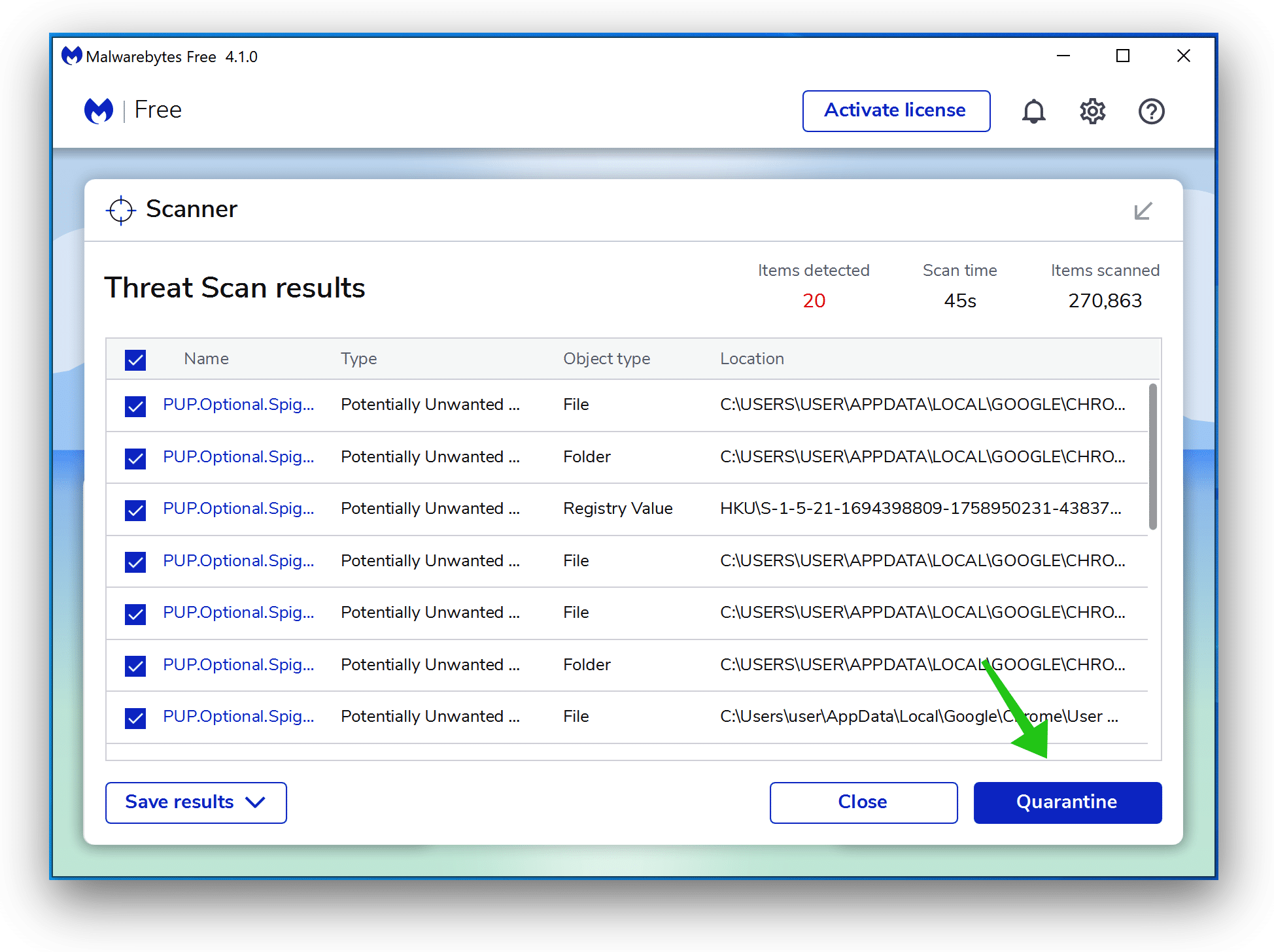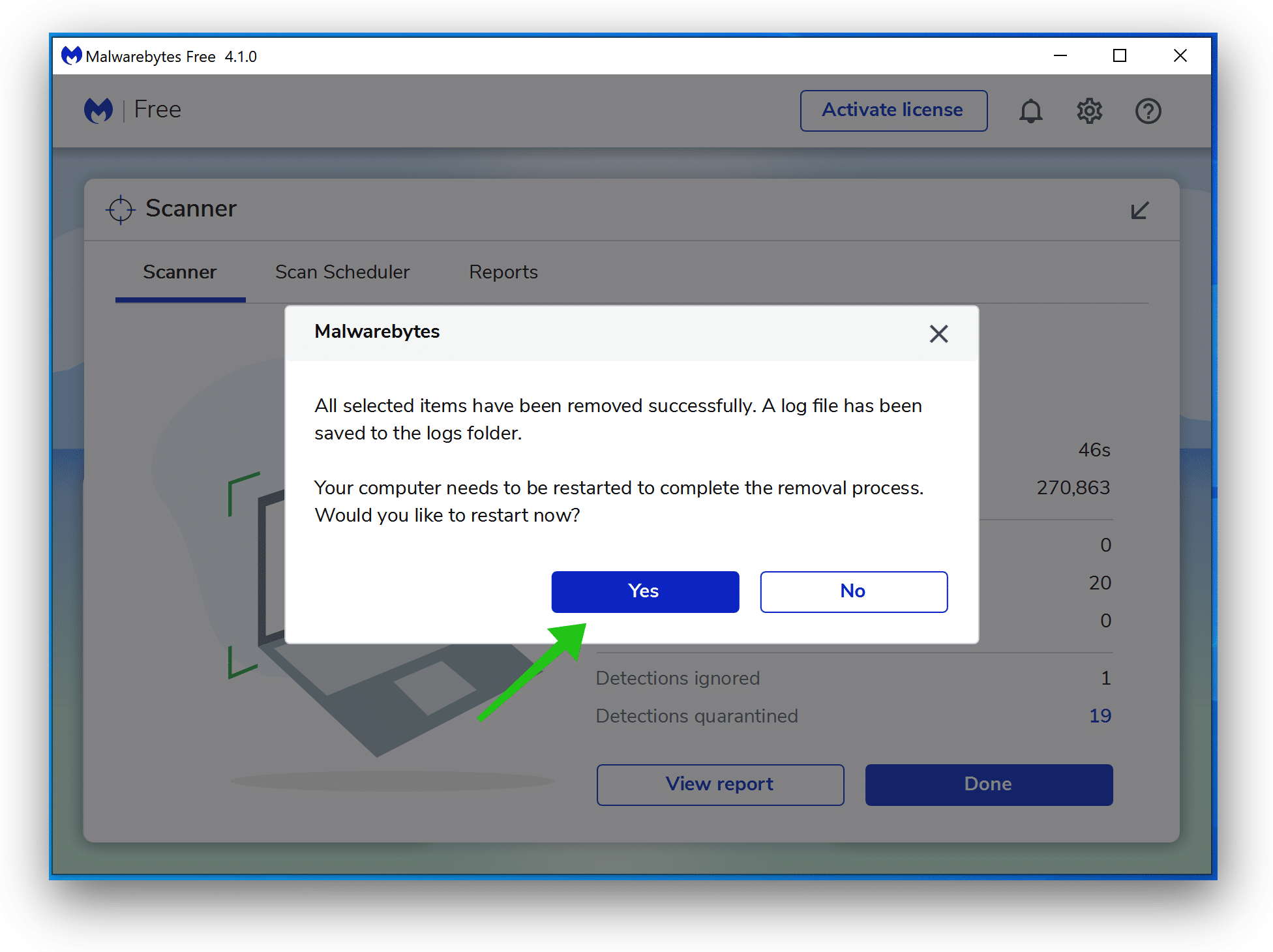Allcommonblog.com advertisements will appear in your browser if you have accepted push notifications from Allcommonblog.com ads. Allcommonblog.com notifications are displayed in the Google Chrome browser (including Android or iOS), Firefox browser, Edge browser, or Safari browser.
The Allcommonblog.com intrusive advertisements appear as pop-ups in the lower right corner of Windows or on your mobile device, for example, an Android tablet or phone or iPad or iPhone.
Allcommonblog.com ads result from rogue advertising networks that redirect users to Allcommonblog.com after a visit, and there try to convince the user to press the “allow” button on the web browser.
Allcommonblog.com is a social engineering trick to mislead users and is only intended to trick you into clicking on the ads that Allcommonblog.com displays. Clicking on the Allcommonblog.com ads will redirect your web browser to multiple dangerous websites and make online revenue for cybercriminals.
In most cases, your computer is most likely not infected with adware or malware, but only a web browser setting needs to be removed to remove the Allcommonblog.com advertisements from your device.
This article will explain how to remove the notifications and associated advertisements sent by the Allcommonblog.com domain from your web browser settings.
Remove Allcommonblog.com pop-up ads

 Remove Allcommonblog.com notifications from Google Chrome
Remove Allcommonblog.com notifications from Google Chrome
- Open Google Chrome.
- In the top-right corner, expand the Chrome menu.
- In the Google Chrome menu, open Settings.
- At the Privacy and Security section, click Site settings.
- Open the Notifications settings.
- Remove Allcommonblog.com by clicking the three dots on the right next to the Allcommonblog.com URL and click Remove.
 Remove Allcommonblog.com notifications from Android
Remove Allcommonblog.com notifications from Android
- Open Google Chrome
- In the top-right corner, find the Chrome menu.
- In the menu tap Settings, scroll down to Advanced.
- In the Site Settings section, tap the Notifications settings, find the Allcommonblog.com domain, and tap on it.
- Tap the Clean & Reset button and confirm.
Problem solved? Please share this page, Thank you SO much.
 Remove Allcommonblog.com notifications from Firefox
Remove Allcommonblog.com notifications from Firefox
- Open Firefox
- In the top-right corner, click the Firefox menu (three horizontal stripes).
- In the menu go to Options, in the list on the left go to Privacy & Security.
- Scroll down to Permissions and then to Settings next to Notifications.
- Select the Allcommonblog.com URL from the list, and change the status to Block, save Firefox changes.
 Remove Allcommonblog.com notifications from Internet Explorer
Remove Allcommonblog.com notifications from Internet Explorer
- Open Internet Explorer.
- In the top right corner, click on the gear icon (menu button).
- Go to Internet Options in the menu.
- Click on the Privacy tab and select Settings in the pop-up blockers section.
- Find the Allcommonblog.com URL and click the Remove button to remove the domain.
 Remove Allcommonblog.com notifications from Edge
Remove Allcommonblog.com notifications from Edge
- Open Microsoft Edge.
- In the top right corner, click on the three dots to expand the Edge menu.
- Scroll down to Settings, scroll further down to Advanced Settings
- In the Notification section click Manage.
- Click to Disable the on switch for the Allcommonblog.com URL.
 Remove Allcommonblog.com notifications from Safari on Mac
Remove Allcommonblog.com notifications from Safari on Mac
- Open Safari. In the top left corner, click on Safari.
- Go to Preferences in the Safari menu, now open the Websites tab.
- In the left menu click on Notifications
- Find the Allcommonblog.com domain and select it, click the Deny button.
Double-check for malware with Malwarebytes
Malwarebytes is an essential tool in the fight against malware. Malwarebytes is able to remove many types of malware that other software does often miss, Malwarebytes is costing you absolutely nothing. When it comes to cleaning up an infected computer, Malwarebytes has always been free and I recommend it as an essential tool in the battle against malware.
Install Malwarebytes, follow on-screen instructions.
Click Scan to start a malware-scan.

Wait for the Malwarebytes scan to finish. Once completed, review the Allcommonblog.com adware detections.
Click Quarantine to continue.

Reboot Windows after all the adware detections are moved to quarantine.

Need help? Ask your question in the comments, I am here to help you with your malware problem.